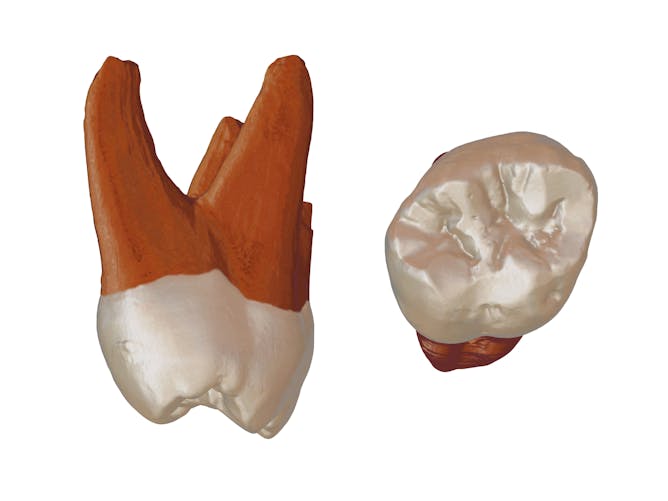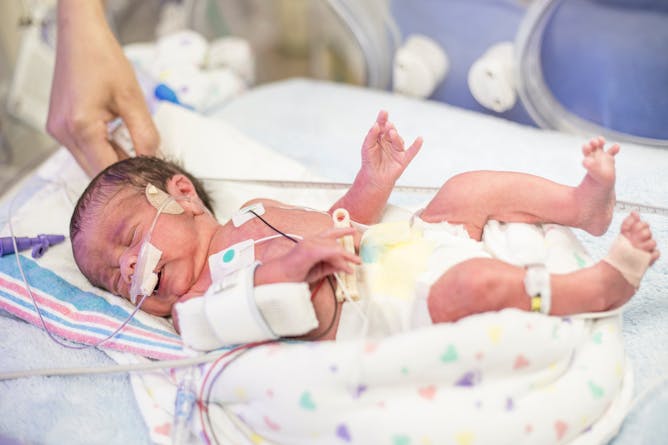|
Today in The Conversation Canada, we have a story that would make the tooth fairy green with envy. Mirjana Roksandic and Joshua Allan Lindal of the University of Winnipeg have weaved a wonderful tale about the day their archaeological team in Eastern Serbia found a fossil that turned out to be a small molar tooth from a Neanderthal. From that single tooth, it’s amazing to learn what the researchers were able to understand about the relationship between Neanderthals and humans almost 100,000 years ago.
Heather Castleden of Queen’s University looks at the federal government’s recent initiative to reduce the dependency on diesel oil in remote Indigenous communities. From coast to coast to coast, Indigenous communities in Canada are quickly becoming important leaders in the renewable energy sector.
And finally…in the ongoing discussion about the opioid crisis, there’s been little attention paid to the plight of newborns born to opioid-addicted mothers. Mary Malebranche of the University of Calgary looks at research that shows positive results when infants and their mothers receive treatment together, a program called “rooming-in.”
Regards,
|

A 3D recreation of a recently discovered Neanderthal tooth.
Joshua Lindal
Mirjana Roksandic, University of Winnipeg; Joshua Allan Lindal, University of Winnipeg
A Neanderthal tooth was discovered in Serbia. This finding helps to fill gaps in the human fossil record of this important geographical region.
|

Many remote Indigenous communities are not connected to the electrical grid and produce their own electricity using diesel generators.
Ocean Networks Canada/Flickr
Heather Castleden, Queen's University, Ontario
A new federal program aims to reduce diesel-dependency in remote Indigenous communities. But are these communities able to do this on their own terms?
|

When newborns stay with their opioid-dependent mothers in hospital, they experience improved mother-infant bonding, greater chances of breastfeeding, less severe symptoms, less medication and much shorter hospital stays.
(Shuterstock)
Mary Malebranche, University of Calgary
The evidence is clear that newborn babies do better when they 'room-in' with their opioid-dependent mothers. So why are hospitals across Canada so slow to provide this recognized standard of care?
|

Une femme est soutenue, mardi, lors d'un service funéraire pour les victimes de l'attentat de dimanche contre l'église St. Sebastian à Negombo, au Sri Lanka.
AP Photo/Gemunu Amarasinghe
Matthias Spitzmuller, Queen's University, Ontario
La puissance des cellules terroristes repose non pas sur leurs leaders mais plutôt sur leur complexité et leur fluidité. L’absence de direction au sens traditionnel du terme les rend difficile à contrer.
|
Health + Medicine
|
-
Daniel Liang-Dar Hwang, The University of Queensland
People with a sweet tooth can (partly) blame their genes for their sugar habit. New research shows how the brain also gets involved.
|
|
Business + Economy
|
-
Nafis Alam, University of Reading
From May 2, any countries buying oil from Iran can expect US sanctions.
|
|
Politics
|
-
Rohit Chopra, Santa Clara University
India's parliamentary elections, now underway, will show how social media is affecting Indian society and government.
|
|